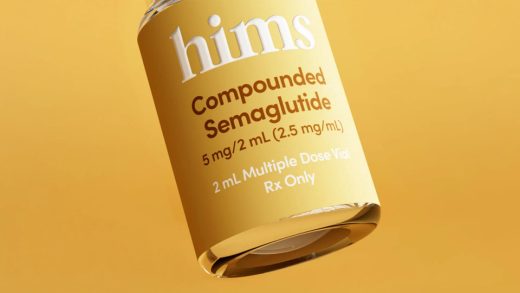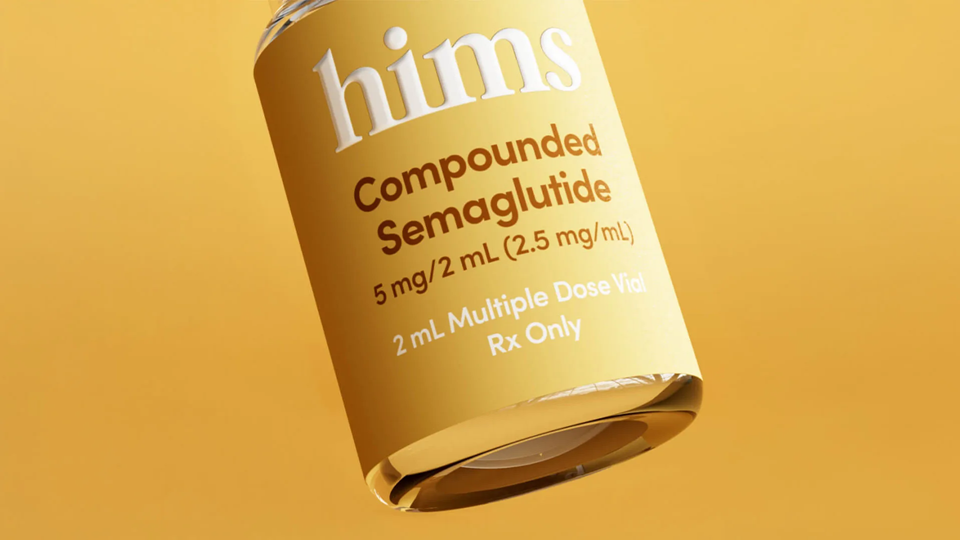Hims & Hers Health stock tanks after FDA says competitor Eli Lilly’s weight-loss drug shortage is over
Hims & Hers Health stock tanks after FDA says competitor Eli Lilly’s weight-loss drug shortage is over
The San Francisco telehealth company had capitalized on the shortage by making copycat versions of popular brand-name GLP-1 medications.
BY Janya Sundar
Shares of Hims & Hers Health fell almost 10% today following an announcement from the U.S. Food and Drug Administration (FDA) that competitor Eli Lilly’s obesity and diabetes drugs are no longer facing supply constraints, and have been removed from the shortage list.
Hims, a San Francisco-based telehealth company, had capitalized on this drug shortage by developing copycat compounded versions of the medications, as permitted by the FDA.
However, the FDA determined (October 28, 2024) that the shortage of tirzepatide injection, a glucagon-like peptide 1 (GLP-1) medication, has been resolved. (GLP-1 drugs mimic a hormone produced in the gut to tamp down a person’s appetite and regulate their blood sugar.) This means that drugs like Eli Lilly’s Mounjaro, which is used to treat diabetes, and Zepbound, which is used for weight loss, can now keep up with current demand.
The removal from the shortage list could effectively bar the commercial production of knock-off tirzepatide products, according to the Wall Street Journal. It is illegal for manufacturers to produce compounded drugs that are identical or nearly identical to an FDA-approved drug, unless the approved drug is on the FDA’s drug shortage list.
“Products that are not essentially copies can continue to be made,” a Hims spokesperson told the Wall Street Journal.
A copycat industry
Drugs prescribed for weight loss, such as Mounjaro, Ozempic, Wegovy, and Zepbound, have been popular, expensive, and in short supply.
To meet the demand, health providers like Hims & Hers had jumped on the opportunity to provide compounded versions of the weight-loss medications, which haven’t been on the market long enough to have generic equivalents.
“As the demand continues to grow, there continues to be a shortage of conventionally manufactured product, and compounding pharmacies are filling that need,” said Tenille Davis, the chief advocacy officer for the Alliance of Pharmacy Compounding, to Stateline in July. “Compounding pharmacies have been able to step in and fill some of those gaps in the marketplace.”
Hims & Hers stock more than doubled after it started offering its compounded weight-loss drugs earlier this year, priced at 85% less than brand-name versions like Ozempic and Wegovy.
However, since the launch, the FDA has warned of patients experiencing adverse reactions to compounded semaglutide, and noted that it does not have oversight over the safety, quality, and effectiveness of compounded versions of the drugs. (According to Hims, its compounded GLP-1 medications are produced exclusively in FDA-regulated facilities in the United States, with ingredients sourced from FDA-regulated manufacturers. This does not mean that the medication is FDA-approved or tested by the FDA for safety and effectiveness.)
Novo Nordisk has also taken legal action against some companies for “unlawful marketing and sales” of compounded drugs claiming to contain semaglutide. Though Novo Nordisk did not explicitly name Hims & Hers in the legal action, the telehealth company’s weight-loss injection is a compounded form of semaglutide.
The FDA confirmed with Eli Lilly that its stated product availability and manufacturing capacity can meet the present and projected national demand. It warned that patients and prescribers may still see intermittent localized supply disruptions as the products move through the supply chain from the manufacturer and distributors to local pharmacies.
This story has been updated with additional context about Hims & Hers Health’s production process.
ABOUT THE AUTHOR
(17)



